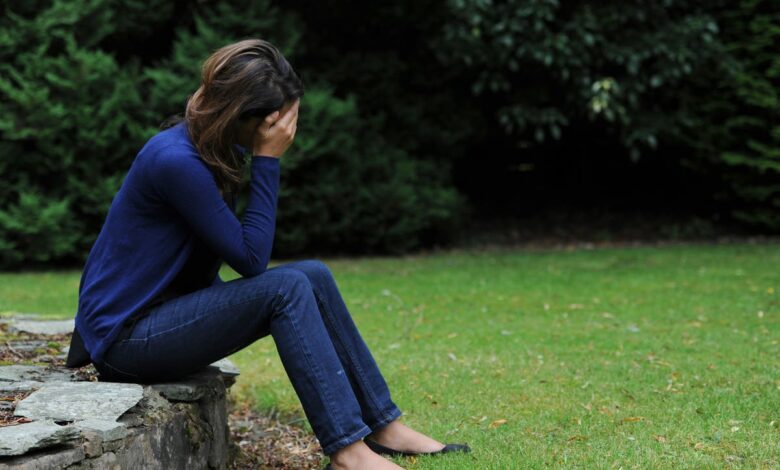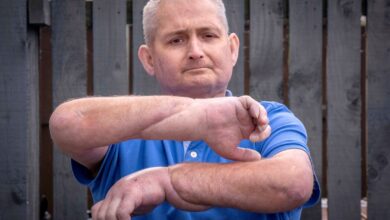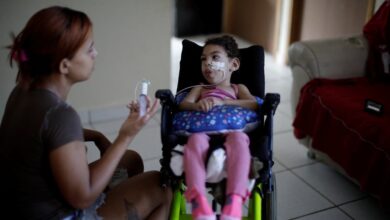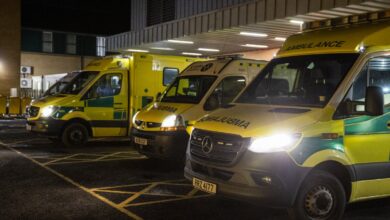The ‘wild west’ of long Covid: The expensive, bizarre and ‘dangerous’ treatments on offer to patients

People with long Covid are being offered unproven, bizarre and, in some instances, “dangerous” treatments by private clinics, often at a cost of hundreds of pounds — as officials warn that the industry is at risk of turning into the “wild west” without proper regulation.
The Independent has uncovered a wide range of therapies being touted to “desperate” patients, few of which have been approved for use in the NHS — or rigorously tested — for alleviating persistent coronavirus symptoms.
These include probiotic implants inserted into the stomach, clot-busting drugs which carry the risk of heavy bleeding and haemorrhaging, IV infusions, and “bioresonance” — a holistic therapy that claims to remove lingering viral matter from the body via electromagnetic waves.
Such treatments are offered after expensive consultations with private practitioners. Patients are typically being charged between £200 and £600 for these sessions.
The NHS has warned that “misinformation around cures or quick fixes for long Covid is putting people at risk”, while the Advertising Standards Authority (ASA) said it was aware of a rise in clinics claiming to treat the condition without providing evidence.
Labour’s Andrew Gwynne, a shadow minister for public health, called upon ministers to implement a “proper system” that provides “accessible, timely and evidence-based care”. He urged ministers to take action against a “wild west industry” that “prices people out of care and preys on people living with Long Covid.”
Scientists believe some private clinics are exploiting patients’ desperation, and have warned against the dangers of unproven treatments. “Various off-licence drugs are being supplied without any consideration of longer-term risks or interactions with other drugs,” said Dr Elaine Maxwell, a trustee of Long Covid Support.
Prof Ami Banerjee, a consultant cardiologist at University College London, said patients were desperate, frustrated and “willing to try anything, which makes them vulnerable”.
“Anybody who’s saying they’ve got anything that can cure long Covid, or even if they’re robustly saying they can make it better, I would take with a mountain of salt,” he said.
Estimates show there are around 807,000 people in the UK who have been suffering from long Covid for more than a year, while 409,000 report that their ability to undertake day-to-day activities has been “limited a lot”.
Approved therapies are provided by the NHS through its long Covid clinics, but these are heavily over-subscribed and only see around 5,000 patients a month.
Some people with debilitating symptoms have subsequently turned elsewhere. In a national survey conducted last year, 17 per cent of long Covid patients had consulted private practitioners. Dr Maxwell said this figure is likely to have risen since.
The Long Haulers clinic, which was set up in March 2022, offers an array of therapies that have yet to be proven as effective or safe, recommended by overseas doctors.
Among its services, the clinic offers “live blood analysis” at a cost of £175. This claims to measure micro-clots within patients. These clots have been legitimately associated with long Covid.
However, in 2015, the ASA said there was “no scientific evidence to support the efficacy” of the test.
“Depending on the results” of the analysis, anticoagulation triple therapy can be recommended and overseen by a consultant, according to an email sent out to patients by Long Haulers.
As a cardiologist who uses anti-clotting drugs for his patients, Prof Banerjee said he was “worried” to see this being offered. “They’re not without risk,” he said. “They can cause bleeds. At worst, they can cause brain haemorrhages. Without trial evidence, there is a risk.”
In the same email sent out to patients, the Long Haulers clinic also appears to offer probiotic implants as a treatment, which involves implanting live bacteria into the colon using a catheter.
Research suggests the Covid virus can linger in the stomach after an infection, but it remains unknown whether the introduction of live bacteria into the stomach can alleviate a patient’s symptoms. David Strain, a senior clinical lecturer at Exeter University, said this type of treatment was untested and “doesn’t have a clear evidence base”.





